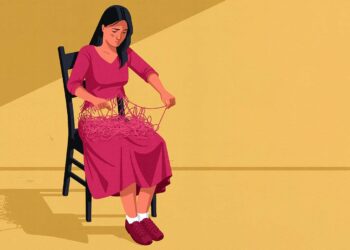Respiratory syncytial virus (RSV) infections were associated with significantly increased risk for complications beyond pulmonology, including poor kidney outcomes and cardiovascular conditions, according to data from a pair of new studies.
In a study of nearly 45,000 individuals published online in Influenza and Other Respiratory Viruses, Wang Chun Kwok, MD, of the University of Hong Kong, Hong Kong, and colleagues compared data from 41,206 adult patients hospitalized with flu and 3565 hospitalized for RSV infections at centers in Hong Kong.
Overall, patients with RSV infection had significantly higher risk not only for in-patient mortality but also severe respiratory failure, secondary bacterial pneumonia, and acute kidney injury than patients with flu (P < .001 for all).
In addition, the researchers highlighted end-stage kidney disease requiring renal replacement therapy as a significant independent risk factor for poor outcomes among the RSV patients, with an adjusted odds ratio of 4.74 for in-hospital mortality (P < .001).
The patients with RSV infection also were stratified by age based on current US recommendations for RSV vaccination (aged 60 years and older, younger than 60 years, and 50-59 years).
Notably, the findings of increased risk were consistent across all adult age groups, the researchers wrote. “The risk factors for severe RSV infections demonstrated in this study provided insights on the target patient subgroups for vaccination, especially among countries and places with limited resources that do not allow vaccination for the entire population,” they concluded.
Flu vs RSV
The study by Kwok and colleagues provides an essential comparison, said Seyedmohammad Pourshahid, MD, assistant professor of thoracic medicine and surgery at the Lewis Katz School of Medicine at Temple University, Philadelphia, in an interview.
“For decades, influenza has set the standard in how we talk about vaccine-preventable adult respiratory disease, but with RSV vaccines now entering clinical use, it’s critical to understand whether RSV deserves similar attention,” he said.
“The findings speak to more than just respiratory illness. The added burden of renal complications and secondary infections makes it clear that RSV can be a systemic threat, especially in hospitalized adults,” said Pourshahid. What stands out is that this pattern was seen across a range of adult ages, not just in the elderly, which challenges the current boundaries we draw around vaccine eligibility,” he added.
Limitations of the study include not only the retrospective design but also the impact of variables including coding accuracy, variability in care, and the effect of existing vaccine use for influenza, which all play a role in shaping outcomes, said Pourshahid. However, the consistent trends seen in the study point toward a need to reevaluate RSV prevention, he said.
“From a clinical perspective, this means not underestimating RSV, especially in patients with kidney or cardiopulmonary disease. From a public health perspective, it raises the question of whether our current vaccine recommendations are too narrow,” Pourshahid told Medscape Medical News. “With further data, particularly post-vaccine implementation, we may find that the case for broader immunization is stronger than expected,” he said.
Additional studies should follow vaccinated patients to identify any changes in the patterns of complications, Pourshahid said. “These kinds of real-world data will be essential in helping us understand not just whether the vaccine prevents RSV infection, but whether it also reduces the broader complications that come with it,” he said.
In another study, published in Clinical Infections Diseases, Paulina Sudnik, MD, of the University of Rochester, Rochester, New York, and colleagues found that approximately one-third of 471 adults hospitalized with RSV experienced a cardiovascular event (CVE) during the high-risk period of the first 28 days after hospital admission.
Previous studies support an association between respiratory viral infections such as influenza and COVID-19 and acute CVEs, but data on the patients with CVEs in the context of RSV are lacking, the researchers wrote.
The study population included 471 adults aged 18 years and older who were hospitalized for at least 24 hours with RSV. Overall, 174 of the patients (37%) experienced a total of 270 CVEs during the high-risk period. The most common CVE was congestive heart failure (25%), followed by atrial fibrillation or flutter (13%), and myocardial infarction (9%).
Although 44% of the CVEs occurred in patients with no prior history of CVEs, preexisting conditions including hypertension, congestive heart failure, atrial fibrillation, and coronary artery disease, or evidence of at least three classic cardiac risk factors were significantly associated with increased CVE risk among patients older than 65 years.
Additionally, the monthly incidence of CVE after RSV infection was significantly increased compared to the pre-infection period, with incidence rate ratios of 18.5 and 1.6 during the high-risk and low-risk periods, respectively, compared to the pre-RSV period.
The study was limited by several factors, including the retrospective design and a lack of data on subclinical cardiac injury and CVEs that were mild or occurred outside the hospital setting.
However, the results were strengthened by the comparison of CVE data before and after RSV hospitalization, and the data may inform clinical decision-making on RSV vaccination, the researchers concluded.
Translating Data Into Practice
The study by Sudnick and colleagues brings needed attention to a dimension of RSV that is often overlooked, Pourshahid said in an interview.
“While most clinical focus has been on its respiratory manifestations, this work shifts the lens to cardiovascular complications and raises important questions about who is truly at risk and how those risks unfold,” he said. “The fact that many of the events occurred in people without known heart disease adds weight to the idea that RSV can act as a stressor, revealing latent disease or perhaps even provoking new events through inflammation and hemodynamic strain,” he added.
Several limitations prevent drawing broad conclusions from the study, Pourshahid told Medscape Medical News. “The data come from a specific region and rely on retrospective review, which limits how far we can generalize, and hospitalized patients also tend to be monitored more closely, so we may be picking up events that would otherwise go unnoticed,” he said. However, these limitations don’t detract from the message that the RSV’s impact is wider than clinicians might often consider, he added.
Clinically, the data reinforce the importance of paying close attention to the cardiovascular profile of patients admitted with RSV, even those without known cardiac disease, and contribute to conversations among policy makers and vaccine and vaccine developers, he noted. “Preventing RSV might mean preventing not just respiratory failure but also heart failure, arrhythmias, or ischemic events, which is an important shift in how we think about vaccine value,” he said.
Prospective studies that can look more closely at how these events happen, how often they recur, and whether vaccines can interrupt that trajectory,” Pourshahid said.
“As this study took place before RSV vaccines became available, we are in a key moment to begin tracking how the clinical picture changes in vaccinated populations,” he said.
Kwok and Desmond Yat Hin Yap disclosed receiving research support from GlaxoSmithKline.
The study by Sudnik and colleagues received no outside funding. Sudnik disclosed having no financial conflicts.
Pourshahid had no financial conflicts to disclose.
Source link : https://www.medscape.com/viewarticle/rsv-raises-risk-diverse-complications-across-adulthood-2025a1000idu?src=rss
Author :
Publish date : 2025-07-11 06:36:00
Copyright for syndicated content belongs to the linked Source.










